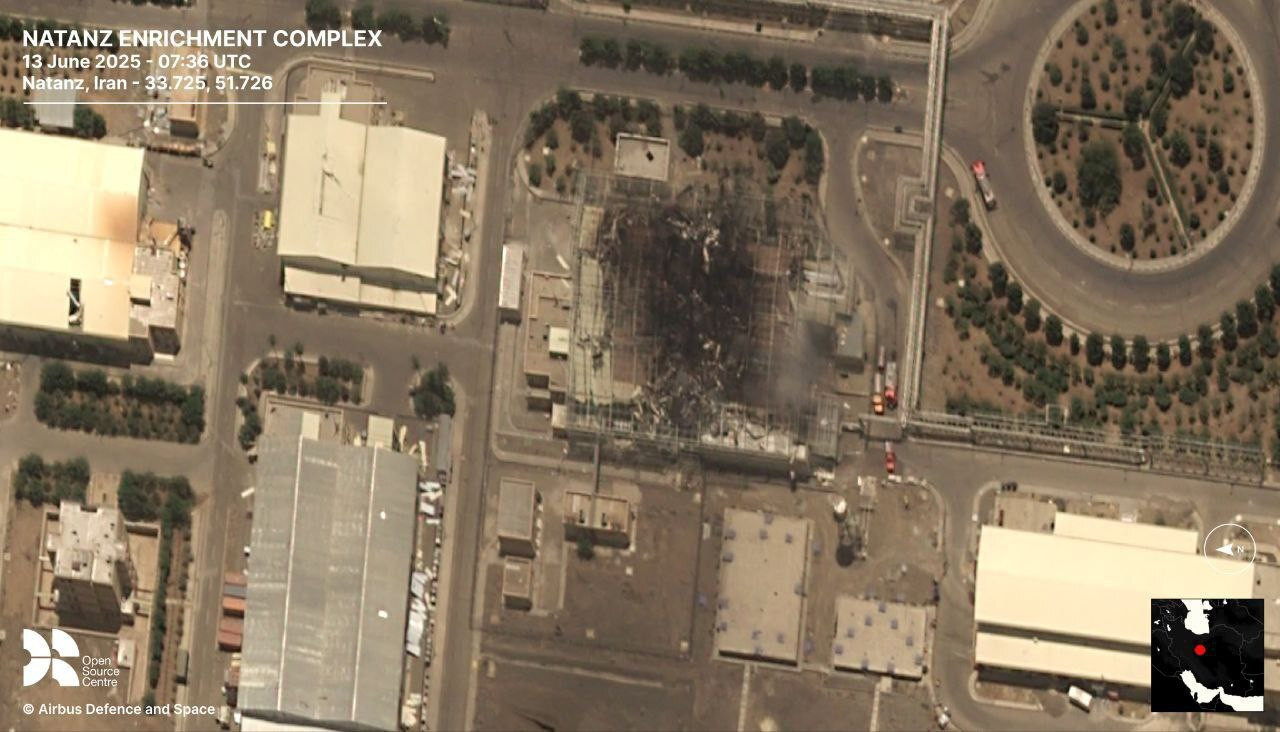
Israel has launched a large-scale military operation against Iran, targeting nuclear and military sites across the country in what officials have called a preemptive strike to neutralize a mounting threat. The campaign, codenamed Operation Rising Lion, began in the early hours of Friday, June 13, 2025, and marks the most significant Israeli attack on Iran since the Iran–Iraq War.
IDF Statement and Objectives
The Israel Defense Forces (IDF) confirmed that dozens of fighter jets struck Iranian surface-to-surface missile infrastructure, destroying launchers, storage facilities, and concealed systems hidden inside shipping containers in western Iran. The military said the operation was based on precise intelligence and aimed to neutralize Iran’s growing missile arsenal, which includes weapons with ranges of thousands of kilometers and poses a threat “to the region and the entire world”.
According to the IDF, over 200 Israeli aircraft dropped more than 330 munitions on approximately 100 targets during the opening waves of the operation. These strikes focused on nuclear enrichment sites, missile bases, and safehouses used by senior Iranian military leaders. The operation also included covert sabotage missions by Mossad targeting Iran’s air defense systems and missile infrastructure, with Israeli officials stating that several targets had not been anticipated by Tehran.
Iran confirms damage to Natanz nuclear facility in Israeli airstrikes
Iran’s Atomic Energy Organization (AEOI) has confirmed that parts of the Shahid Ahmadi Roshan uranium enrichment facility in Natanz sustained damage following Israeli airstrikes early Friday, but reported no casualties or radiation leakage. (Source: IFP News)

Iranian Supreme Leader Ali Khamenei has vowed “severe retaliation,” warning that Israel will face a “bitter and painful” outcome. Iran has already announced new commanders for both its military and the Revolutionary Guards in the wake of the attacks.
Casualties and Key Figures Targeted
Israeli officials report that the strikes killed several top Iranian military leaders, including:
- Armed Forces Chief of Staff Mohammad Bagheri
- IRGC Commander Hossein Salami
- Senior commander Gholam Ali Rashid
- IRGC Aerospace Force commander Amir Ali Hajizadeh
- Multiple nuclear scientists, including Fereydoon Abbasi and Mohammad Mehdi Tehranchi
Iranian state media have confirmed the deaths of some of these figures, while others remain disputed. Civilian casualties have also been reported, with local media citing injuries among women and children in Tehran’s northern district.
Prime Minister Benjamin Netanyahu addressed the nation, stating that the strikes were intended to degrade Iran’s nuclear capabilities and missile production facilities, and warning that the operation could last several days. Defense Minister Israel Katz declared a nationwide state of emergency, urging Israelis to remain near protected areas and prepare for the possibility of Iranian retaliation.
Chief of the General Staff LTG Eyal Zamir described the operation as a necessary move at a “point of no return,” emphasizing that Israel could not afford to wait any longer given intelligence assessments that Iran had amassed enough enriched uranium to produce up to 15 nuclear weapons within days.
Regional and Civilian Impact
As a result of the strikes, Israel’s airspace has been closed for all takeoffs and landings until further notice, with the Transportation Ministry advising passengers not to come to Ben Gurion Airport and to await further updates. Similar disruptions and airspace closures have occurred across the region, affecting international travel and commercial aviation.
Background and Escalation
The attack follows months of escalating tension over Iran’s nuclear program. Iran has been enriching uranium to 60% purity—close to weapons-grade—and installing advanced centrifuges at an accelerated pace. Just a day before the strikes, the International Atomic Energy Agency found Iran non-compliant with its nuclear obligations for the first time in 20 years, further heightening Israeli concerns.
Featured image: Tasnim News Agency, CC BY 4.0 https://creativecommons.org/licenses/by/4.0, via Wikimedia Commons













